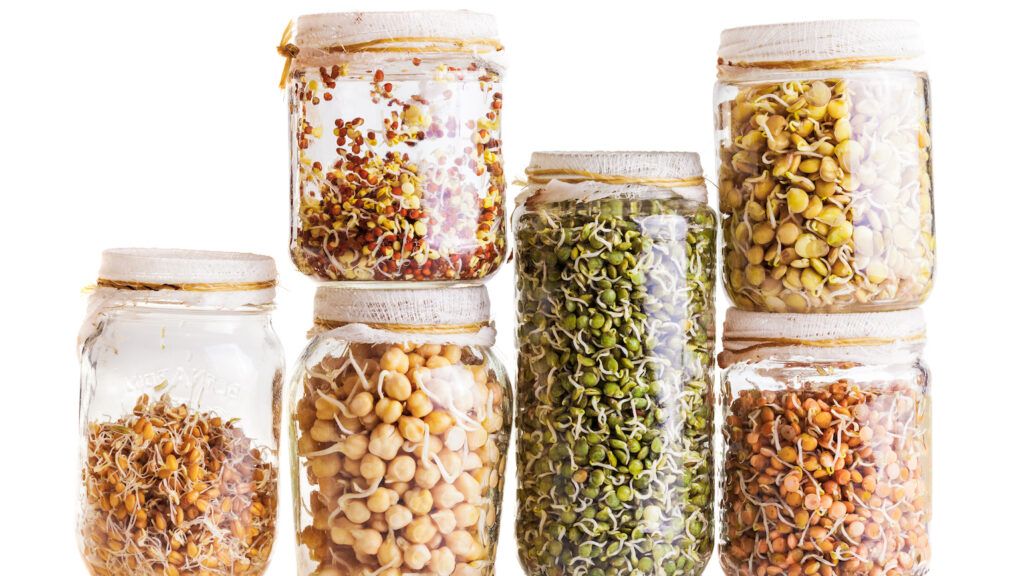Sprouts add a fun bit of freshness and texture to salads, sandwiches, stir fries, even scrambled eggs—but did you know (I didn’t) that sprouting seeds makes them easier to digest and boosts absorbable nutrients like vitamin C and fiber?
In addition to being flavorful, attractive and nutritious, sprouts are among the easiest and least expensive things you can grow yourself—right on your kitchen counter.
Start with a handful of seeds, beans or legumes. There are many choices, including lentils, alfalfa, radish, mung bean or mustard. Garden shops often carry specially packaged sprouting seeds, which are an easy approach if you aren’t sure what you want to sprout.
Soak Your Seeds
Soak seeds in a ratio of one part seeds to three parts water for 8 hours. You can soak your seeds in a Mason jar either left open or covered with a piece of cheesecloth secured with a rubber band.
Drain and Rinse
Drain your seeds into a fine mesh sieve and rinse them off. Return them to the jar, gently turning the jar so some seeds “stick” to its sides.
Rinse Twice Daily
Each day, check in with your seeds to rinse and drain them before replacing them in the jar. In as little as one day, you’ll see tiny sprouts poking out of your seeds!
Harvest and Eat
When your jar is filled with seeds that have sprouted between one half and two inches in length, give them one final rinse and then spread them out on an absorbent microfiber towel or paper towel. Let them air dry for 30-60 minutes before eating or storing.
Store Your Sprouts
If you don’t want to eat all your sprouts at once, your goal is to keep them dry and cool for storage. Line a Mason jar or lidded food storage container with a clean tea towel or paper towel, and gently place the sprouts inside. Store in the refrigerator for up to a week.
It’s important to follow some simple safety protocols to protect yourself and your family from the small possibility of contaminants like E. coli or salmonella that can lurk inside seeds. Use filtered or bottled water for your soaking and rinsing, rinse your sprouts once more before eating if they have been stored, and do not allow your sprouts to sit in standing water.
Do you grow sprouts on your kitchen counter? How do you use sprouts in your cooking?





